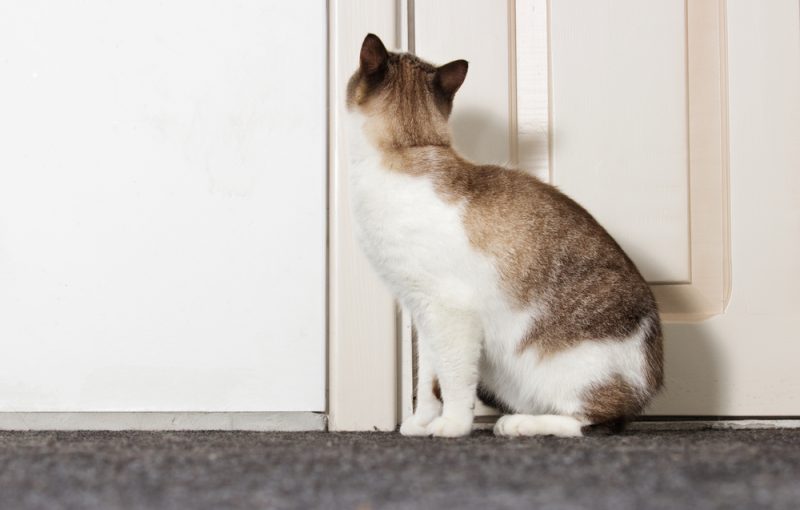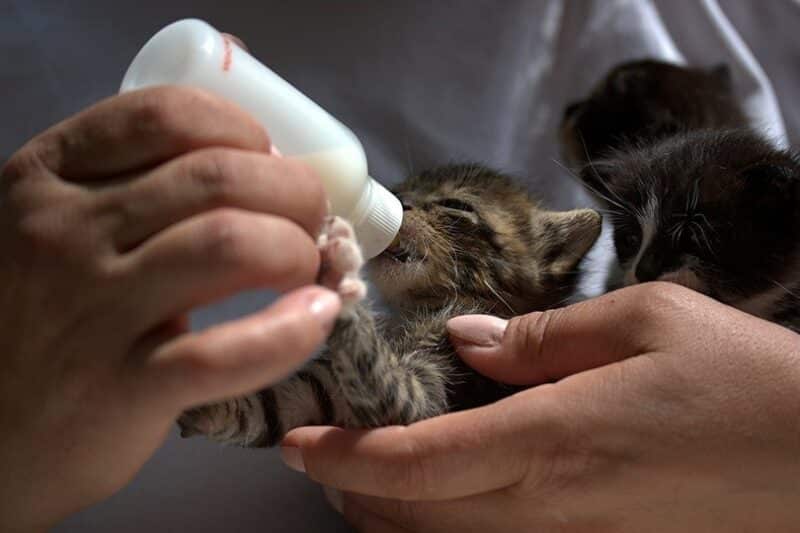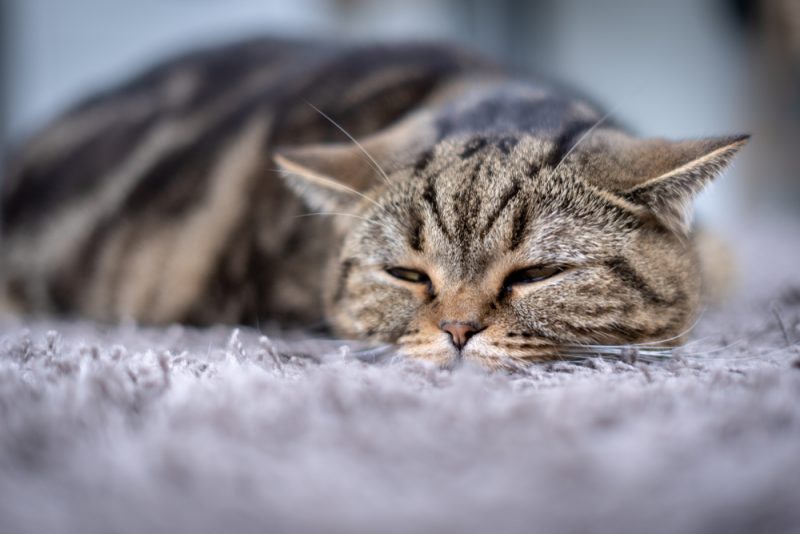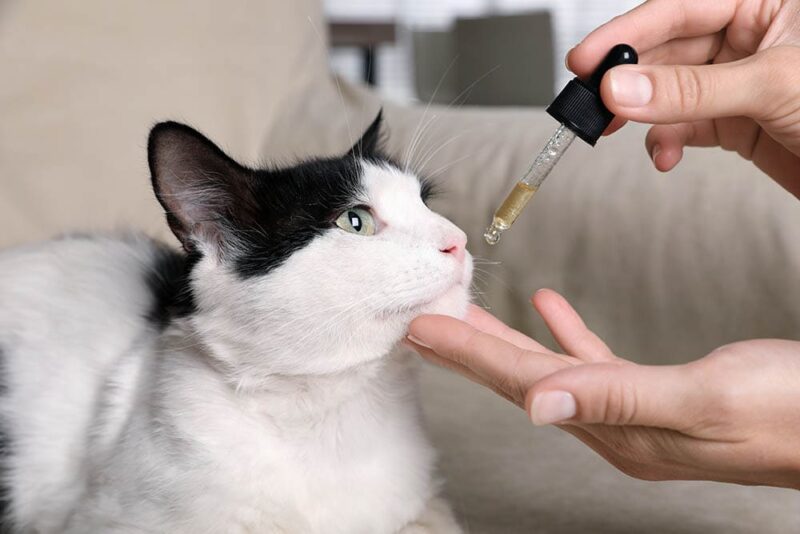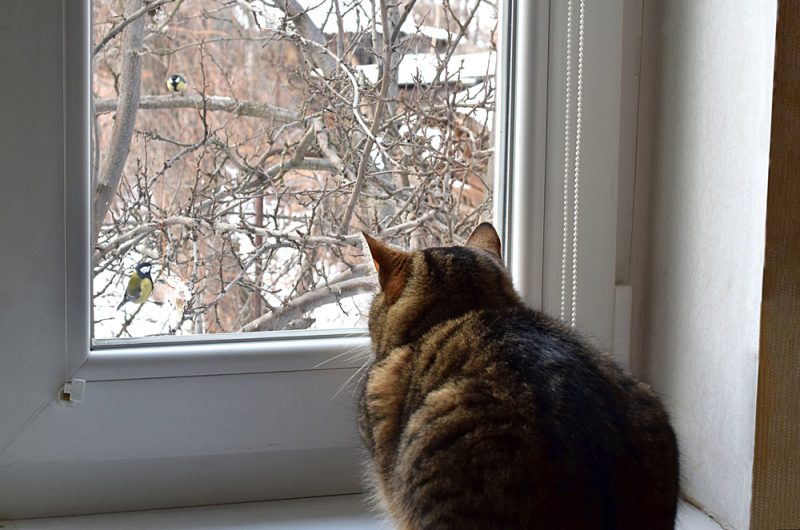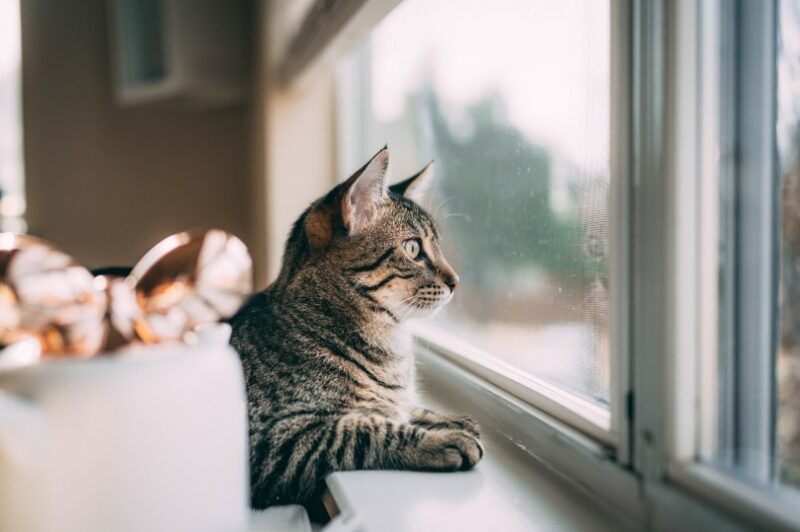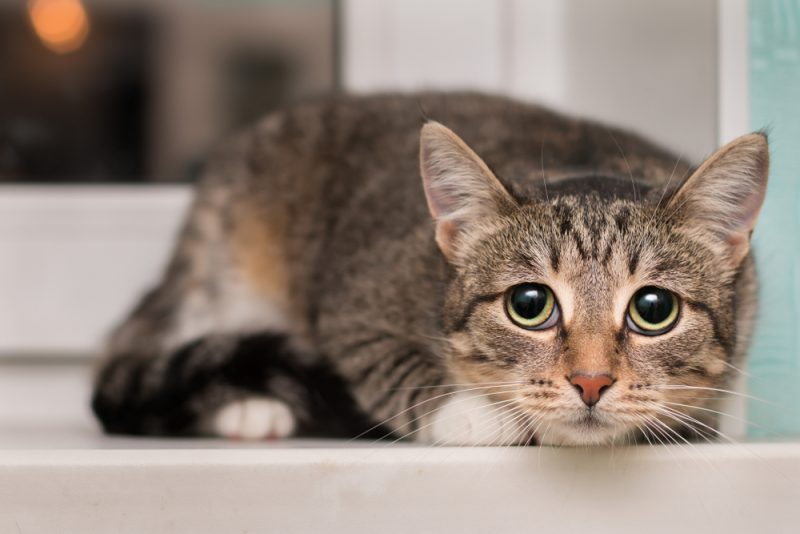Scratching is a natural behavior for cats. When they scratch your door, however, it can be annoying and may cause damage that you have to repair.
Fortunately, there are ways to train your cat to stop scratching at your doors and redirect that energy into more appropriate behaviors, depending on the reason for the scratching in the first place. Read on below to find out more.

Why Do Cats Scratch Doors?
- Curiosity: Cats are naturally curious. If there’s a door closed, they may wonder what’s happening behind it that they’re not privy to. This is especially true of doors that are always closed, such as your backdoor or basement door. Outdoor cats may be more keen to scratch at a door if that’s where they’re let in and out.
- Boredom: Scratching is a fun behavior for your cat, so scratching at a door could simply be due to boredom. Doors are solid and offer resistance, making them ideal scratchers for your cat.
- Attention Seeking:If your cat wants your attention, scratching a door is a good way to get it. Your initial reaction may be to raise your voice or walk towards them, which gives your cat the attention they want.
- Maintaining Nails: If you don’t have enough enrichment for your cat, they may need to scratch at other items in your home to maintain their nails—including your doors, furniture, and carpets.
- Marking Territory: Scratching is also a way for your cat to mark their territory, using the scent glands on their pads. Maybe you got a new pet and your cat feels they need to clearly state this house is theirs.
- A Good Stretch: While scratching the door, or ideally their scratch posts, cats tend to stretch their bodies, extending and relaxing the muscles and preparing themselves for the adventures the day ahead brings.
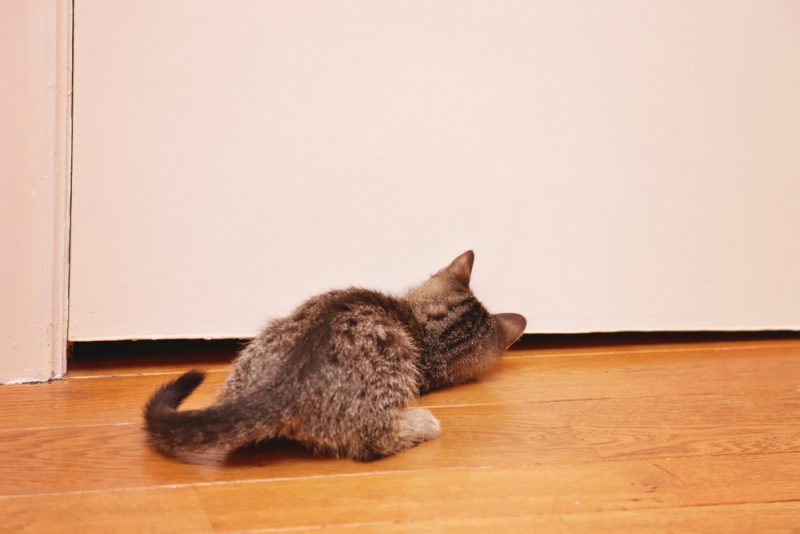

How to Stop Your Cat From Scratching at Doors in 7 Steps
It’s helpful to identify why your cat is scratching at your doors, and act by aiming directly at the cause, but these tips can help you provide more appropriate outlets and discourage destructive scratching:
1. Provide Scratching Posts
Scratching posts are a necessary enrichment item for your cat. If you don’t have a scratching post, your cat will be forced to find new places to scratch to maintain their nails and get some stretching. Make sure you have at least two large, stable scratching posts in your home.
If you already have a scratching post that your cat doesn’t use, consider upgrading it. It’s possible that it’s worn out or doesn’t offer enough interest for your cat. You could also try wall and floor scratchers to give your cat variety. Cardboard scratching posts or mats are ideal because your cat can shred the cardboard easily and release their scent, which encourages them to continue using it.
Some cats may prefer fabric or rope, however, so experiment until you find your cat’s ideal option.
We're quite fond of cardboard as a material in cat scratchers, which is why we love the Hepper Hi-Lo Cat Scratcher. Encased within a well-constructed, modern birch plywood frame, this scratcher is designed with both cats and their owners in mind. It offers three versatile configurations to keep your feline friend active and entertained while enticing them to fulfill their natural scratching instincts (and away from scratching things they shouldn't). For more details, click here! At Catster, we’ve admired Hepper for many years, and decided to take a controlling ownership interest, so that we could benefit from the outstanding designs of this cool cat company!
2. Keep Your Cat’s Nails Trimmed
Cat claws grow endlessly, but they shed the outer layer regularly. Cats are naturally inclined to scratch to keep their nails sharp and short for hunting and climbing. If you’re not trimming your cat’s nails often enough—or not providing ways for your cat to maintain their nails—they will take matters into their own “hands” by scratching solid surfaces like your doors.
Make nail trimming part of your regular grooming routine. Some cats are finicky about their nails, so take it slow. Even if you only trim one nail at a time, make it a positive experience with lots of treats and slowly work your way up to full paws and, eventually, all four paws.
Stopping your cat from scratching can be tricky, but keeping their nails trimmed can help. Hepper's Cat Nail Clipper Set can make it easier, with sharp stainless steel blades for precision clipping and ergonomic, non-slip handles. The built-in safety guard and locking switch will keep you and your cat safe, and the two different sizes of clippers will allow you to handle any size or angle of nails.
3. Offer More Stimulation
Cats need both physical and mental stimulation and environmental enrichment to relieve pent-up energy. In addition to scratching posts, make some playtime part of your routine and give your cat some exercise. Interactive toys like balls, mice on a wand, or puzzle toys can encourage your cat to hunt and pounce, giving their brain and body a workout.
You could also incorporate cat trees and perches with dangling toys and scratch posts to keep your cat more entertained. Make sure to play and tire out your kitty before bedtime.
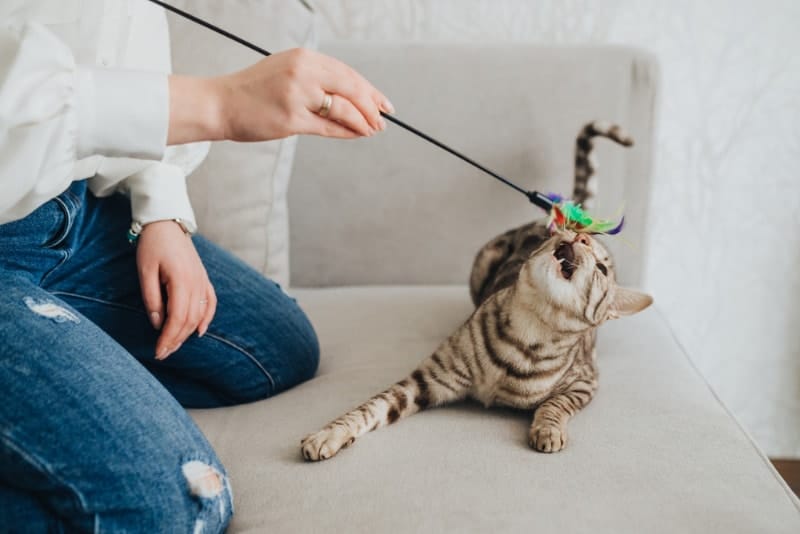
4. Feed Your Cat Before Bedtime
If your cat is scratching at your closed bedroom door at night, you may need to adjust their feeding schedule. Cats are crepuscular, so if they’re hungry late at night or first thing in the morning, while you’re still asleep, they’re more likely to ask you for food, sometimes by scratching at your door. Try feeding your cat close to your bedtime to make them more likely to sleep instead of scratching at your door.
5. Schedule a Vet Appointment
If your cat has only recently started scratching at your doors, there could be a medical problem to blame. Schedule a vet appointment to ensure that your cat doesn’t have any health problems that are leading to increased scratching.
If you need to speak with a vet but can't get to one, head over to PangoVet. It's an online service where you can talk to a vet online and get the advice you need for your pet — all at an affordable price!

6. Redirect the Behavior
While other interventions can help, you may need to train your cat to stop scratching your door. Most importantly, don’t give your cat any attention when they’re scratching, as this reinforces the behavior. Don’t scold, open the door, call them, or anything else.
Positive reinforcement training to redirect your cat is one of the best ways to teach your cat what’s appropriate to scratch. Reward your cat for using a scratching post or mat instead of scratching at the door. You could also put double-sided tape or tin foil on your doors to discourage the behavior while you work on training. If you have an outdoor cat that is used to being let in and out through the door, consider leaving a window open for them instead or installing a cat flap.
7. Consider Pheromone Diffusers
If your cat’s scratching is due to the stress of having another cat and their need to mark the territory, ensure you do any new pet introductions very gradually, giving both cats plenty of space and reassurance, providing each with their own beds, toys, bowls, litter boxes and set of resources. All of this should minimize the competition for resources and slowly get both cats used to living together. Double up on scratch posts as well.

Conclusion
Cats scratch at doors for various reasons. While it’s important to get to the bottom of your cat’s behavior, these tips should help you redirect your cat’s behavior and teach them more appropriate ways to satisfy their scratching instincts.
Related Reads:
- Why Does My Cat Try to Bury Her Food? Reasons for This Behavior
- Why Does My Cat Sit By the Door? Common Reasons
Featured Image Credit: SoNelly, Shutterstock
